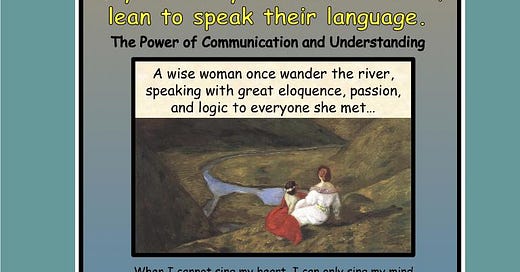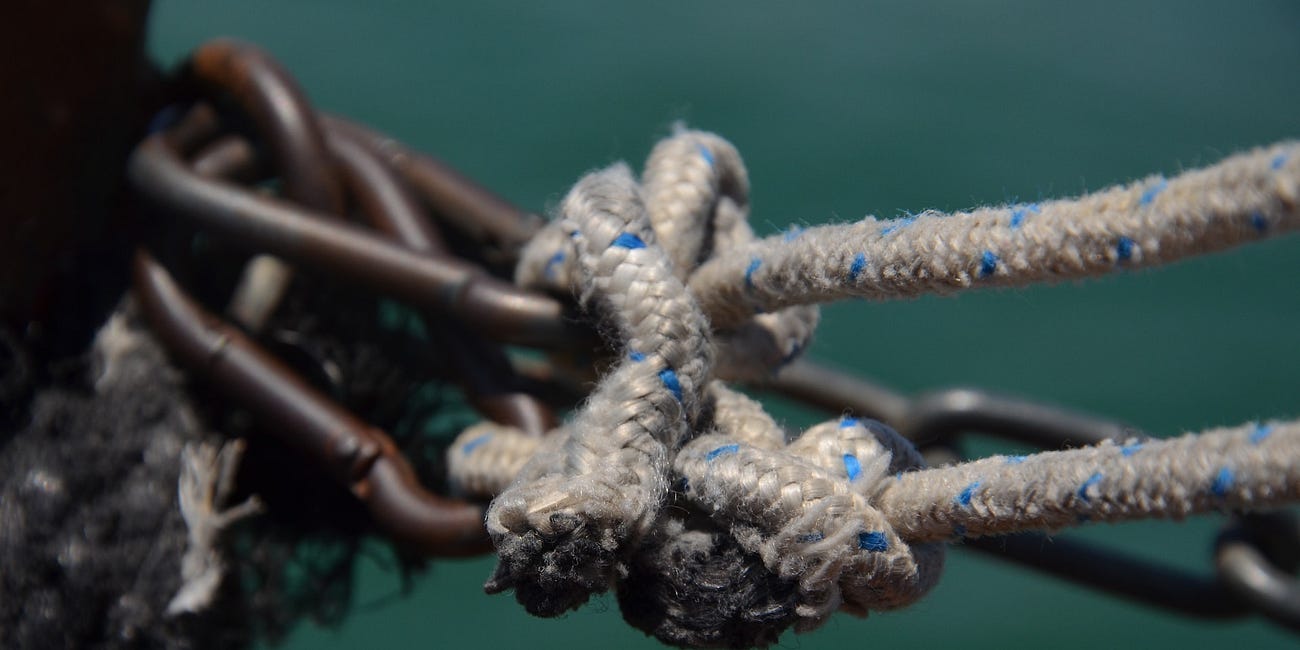Navigating a Whackadoodle World: Guidepost Twelve, or The Power of Communication and Understanding
Past and present links to our episodes on Guidepost Twelve: The Power of Communication and Understanding
“Sometimes people say everything without saying a word,” I told her. “The problem is that nobody hears them.”
“What the heck does that mean?” she said.
“It means that if someone doesn’t seem grateful enough to you, it might be because they don’t feel grateful about what you’ve done for them, and they’re really ticked off by your intrusion, but they don’t want to make things worse, so they act like everything is alright. Meanwhile, they are starting to get pissed off because you told them that they should feel more grateful for your help, when you haven’t even bothered to ask them if they want your help. If you have no idea what I am talking about, just look up unwanted advice on the Internet.”
“I sense some personal history here.”
“Long story, not meant for the Internet.”
“So why did you bring it up?”
“Because of the message behind it,” I told her. “If someone does not appear grateful to you, maybe it’s because they are not feeling grateful, but are too polite to tell you that your help was not wanted. I know that when I feel grateful, I let that gratitude pour out. Yet, there have been several times in my life that I have been told ‘You should be more grateful,’ when the truth is that what they have done for me, I absolutely did not want! In fact, their actions ticked me off, and that’s why I appeared ungrateful.”
“Why didn’t you tell them not to do whatever the thing was that they were doing?”
“Generally, because the thing was already done, and I was given no choice but to appear grateful.”
“That sucks,” she said.
“Gravity’s a farce, the earth sucks,” I countered without thinking, and suddenly laughed.
“What the heck does that mean?” she asked startled.
“It’s my favorite graffiti,” I explained. “I saw it written on a bathroom wall when I was in high school. I’ve remembered it ever since, and it always makes me laugh.”
“Have I told you recently that you’re weird?”
“Have I told you recently that I know?”
“So what was your point again?”
“My point is that we communicate in many different ways, and sometimes it’s by doing, or showing, nothing.”
“Doing nothing is a form of communication?”
“Our every action is a form of communication, as is our every non-action.”
“I guess that’s a pretty good point,” she conceded. “Shall we post our past articles about Guidepost Twelve now?”
“By all means, let’s do.”
Navigating a Whackadoodle World: Episode Twelve
My student brought a care package with her to our next lesson. "I looked at that list of foods high in potassium that you linked to," she explained. "Everything in this trail mix is high on the list. I mixed it myself. You've got sunflower seeds, almonds, cashews, bananas…
Navigating a Whackadoodle World: Episode 26, or What to do when the people you are learning to listen to, still don’t know how to listen to you?”
“What do you do when the people that you are learning to listen to, still don’t know how to listen to you?” she asked one week. “Tricky question,” I replied. “Did they start the conversation, or did you?”
For those of you who have already read the above episodes, here is a link to our newest episode on the Power of Communication and Understanding.
Navigating a Whackadoodle World: Episode 41, or What are the barriers to Communication and Understanding?
“I have been thinking a lot about communication barriers,” she told me unexpectedly.
“What made you think of them?”
“I suppose that I’ve just been noticing how often communication breaks down between people these days. Plus,” she added sheepishly, “I was reading your book the other day...”
“Now we remind people that if they know someone who could use the guideposts, they can share this post with a friend.” She hit share the moment she said it.
“Do we want to add a quick fun post?” I asked.
“Not if we need to write something else,” she answered.
“So, can you think of something we’ve already written?”
“I know,” she said suddenly, and embedded the article without saying another word.
“Why that one?” I asked, uncertain.
“Because it’s a short article about a communication breakdown, and has a cute picture of a dog.”
“Good enough for me.”







